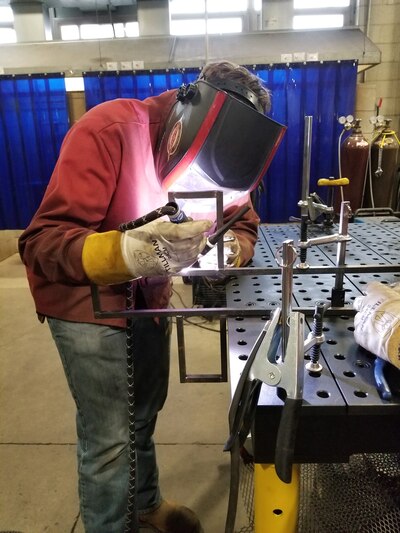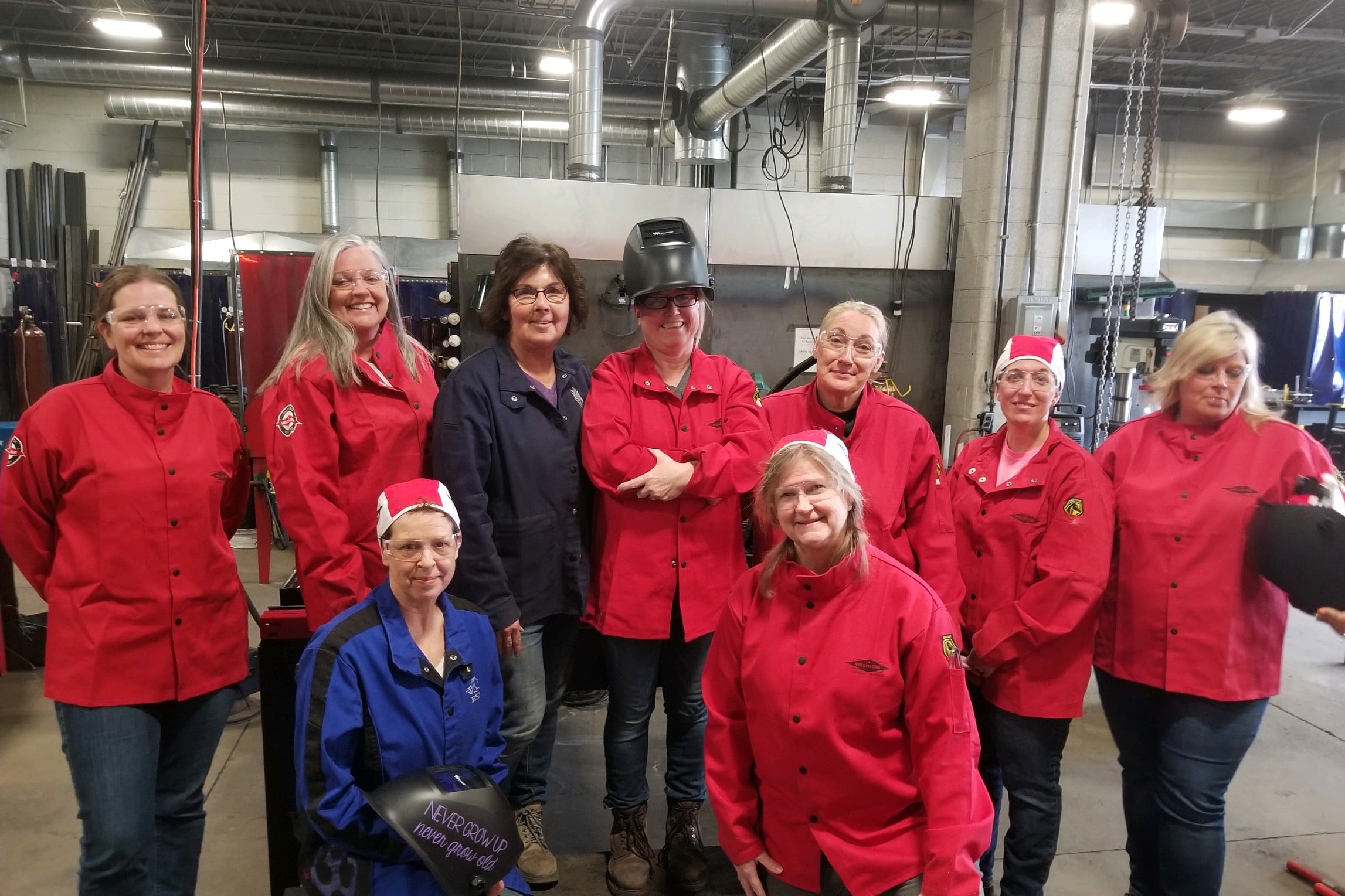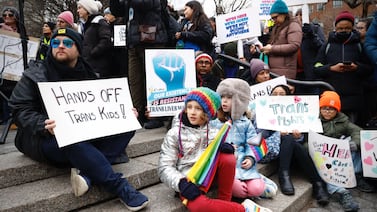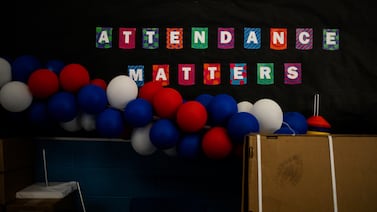One of Kim Rosenbaum’s former welding students called, asking to speak to her class. He was a pipefitter now, and he wanted to report back that everything she had taught him about what it was like to work a job had been spot on.
Rosenbaum, an award-winning teacher at Twin Lakes High School in Monticello, Indiana, had started her career in welding as a single parent who needed to support her family. Before becoming a teacher, she worked for 14 years in machine shops — experiences that she thinks make her a better teacher.
“I could bring that to the weld shop here and express to them what the real world is like,” she said.
Rosenbaum recently spoke to Chalkbeat about how she prepares her students for careers and what it’s like being a woman in a male-dominated field.
This interview has been lightly edited for length and clarity.

How does having a prior career in welding affect the way you teach?
Being in the welding industry was the best thing for me. I am able to share my experience as a welder with my students and the obstacles they might go through.
When I first got here, we gutted the weld shop. I wanted a full production: a CNC plasma cutter, a layout table. All the things that these kids are going to see when they go out into the real world, I wanted them to have here.
What’s it like being a woman in welding?
It was harder when I started school and I had to prove myself. A woman has to work twice as hard and do twice as much work. When I applied for my first welding job, it was a struggle. They weren’t sure if they wanted a female welder there. I convinced them that I can do this.
When I first came here, there was another teacher who said, “Well, you’re not a real teacher.” One student didn’t think that I could teach him anything. So after he graduated, I said, “How did I do? Did I teach you something?” He said, “Yup, you sure did.” He still calls me or stops by the shop every so often.
In the beginning, I didn’t have any female students. Then I’d get one or two. Now I have three. I’m getting more girls, especially because they know I’m a female welding instructor, too.
Tell us about the Women in Welding program.
I started this six years ago. My director asked how we could encourage more girls to pursue non-traditional roles. I suggested a “women in welding” class. I got 10 women: a Spanish teacher, a culinary teacher, an English teacher, and a couple of counselors. I asked them to take my class, but they had to do two things: Promote my class to girls and make a piece of artwork to display. Letting female students see their teachers taking a welding class and what they made might encourage them to take my class.
I have my students teach the class. I’ve had teachers come in and say, “Oh my gosh, this student is a totally different person here than they are with me.” Well, it’s because they’re in their comfort zone. This is where they thrive. Sure, we do some math, and I teach them how to read a rule, but it’s hands-on and they don’t feel dumb. They’re a different kind of smart.
What kinds of conversations do you have with students about how they can use their welding skills in their future careers?
I have guest speakers, like someone from the Ironworkers, come in and talk about a career in welding. We also go on field trips, probably at least four a year. We’re going on a field trip to Terra Drive Systems; they make chassis for John Deere. The one time we went two years ago, they actually let one of my students weld. We bring our welding jackets and hoods so we can watch. They get excited about that. One of my students wants to work there.
Some kids are farmers and want to know how they can use welding to fix farm equipment, or kids are interested in fixing their cars. I have other kids who really want to do this for a living. We just had certification day, where students earned an American Welding Society certification. We had a Certified Welding Inspector come in and check their welds. To see them, the look in their eyes when they pass that test — you did it! It’s a great accomplishment because now all their hard work has paid off.
At a recent advisory meeting, I had employers here, and I want to partner with them so the work-based learning kids in their third year can go on a job and get paid for it during my class. I am going to make this happen!
I have kids who say, “I love your class, that’s the only reason I’m coming to school.” Let me be the reason! Because I want to see you graduate.
Tell us about your own experience with school and how it affects your work today.
I was an average student in school. I did enjoy being on the girls basketball team. I was in band, and I was also on the track team. I guess you would call me a competitive person. I have a good work ethic, and I try to teach my students that this is something that they need to have.
What’s one thing you’ve read that has made you a better educator?
“Steal Like an Artist” by Austin Kleon. It’s about taking pictures of things and then making it your own. Like talking to other instructors on how they do things and then making it my own.








